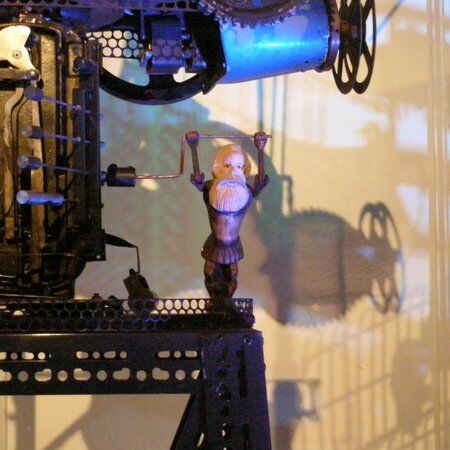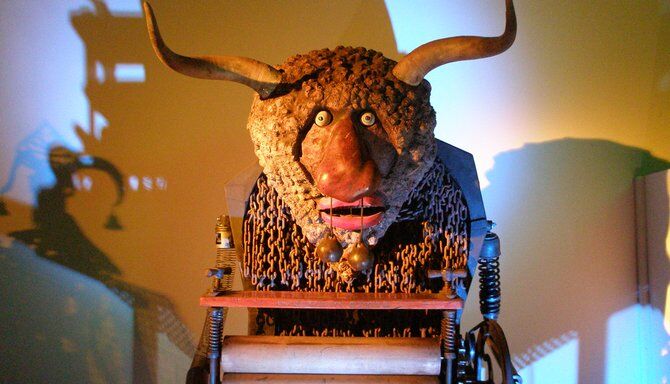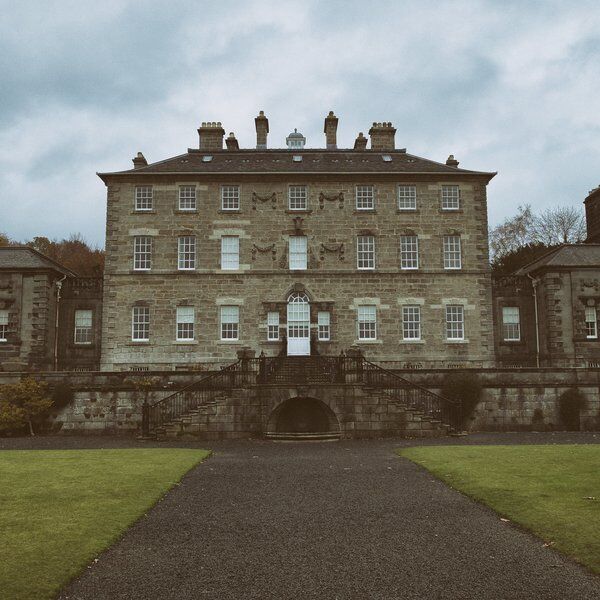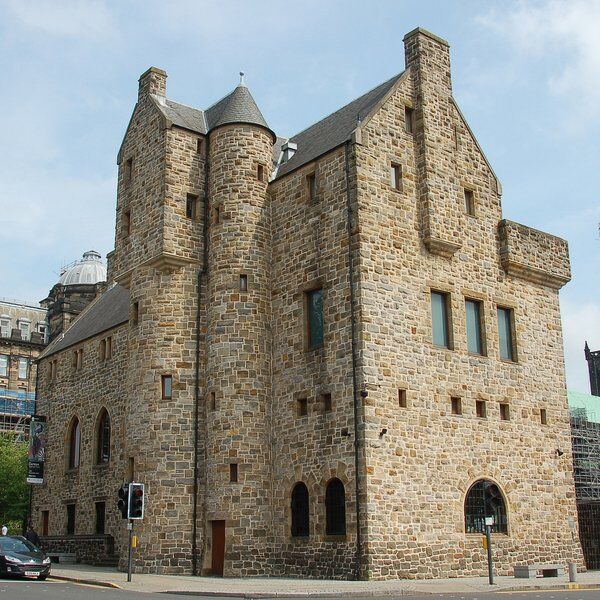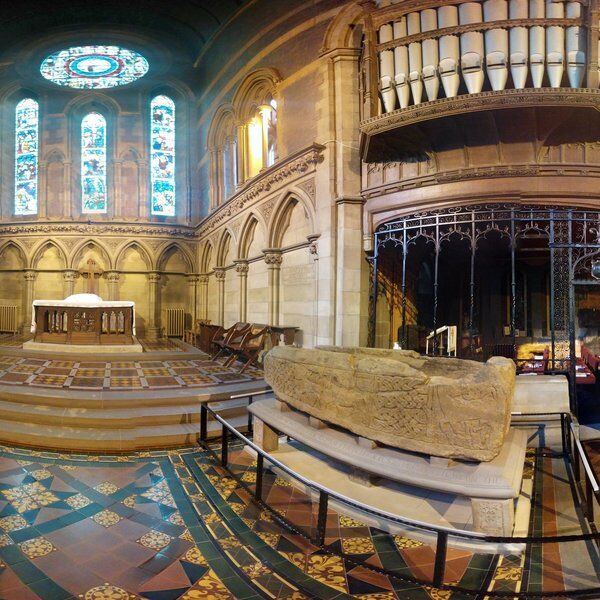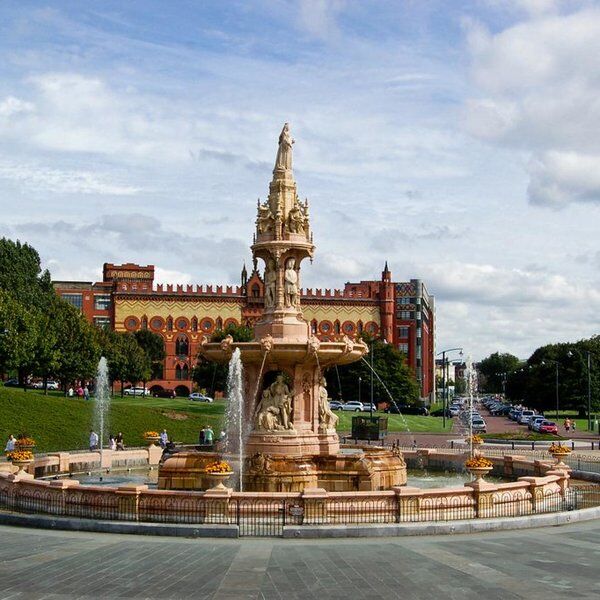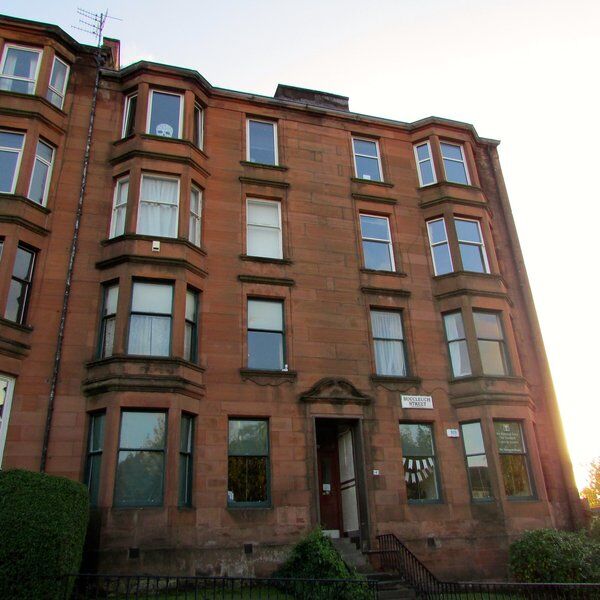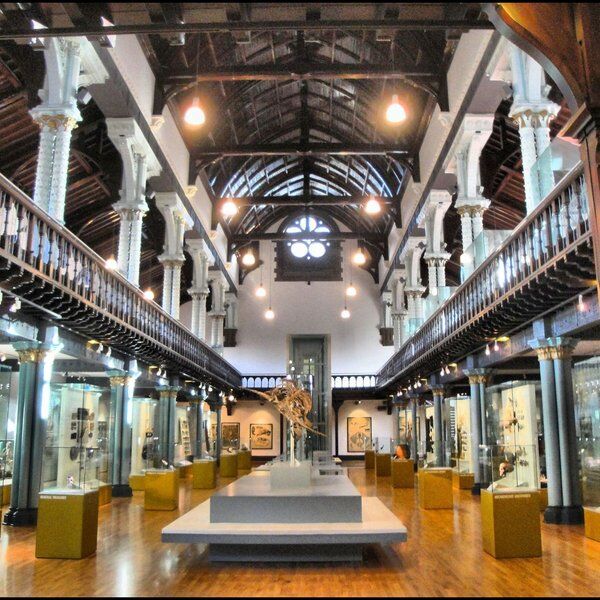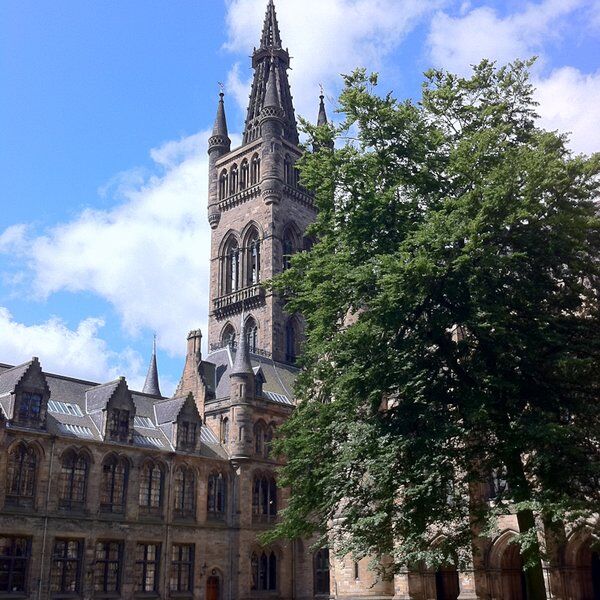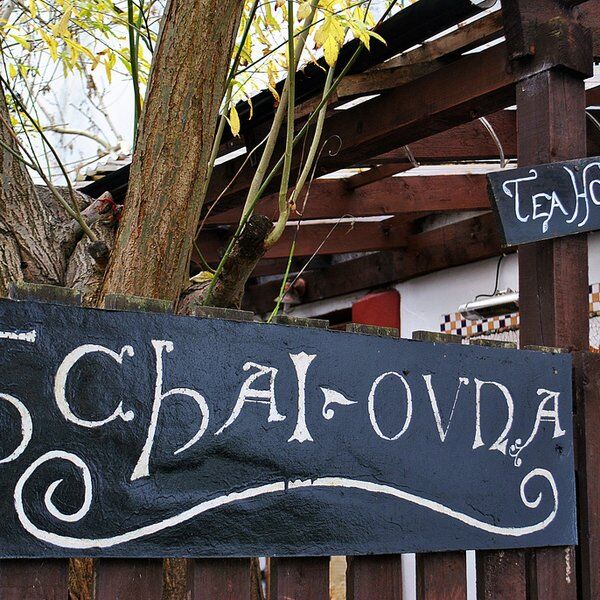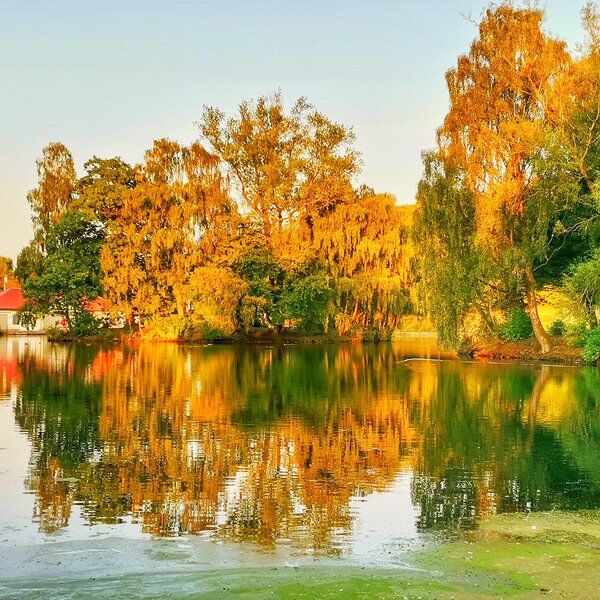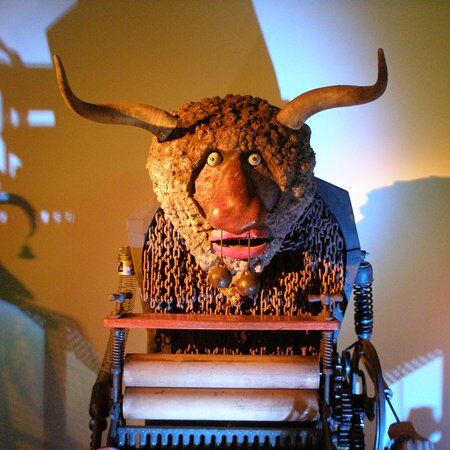
Discover Sharmanka Kinetic Theatre in Glasgow
Founded by sculptor-mechanic Eduard Bersudsky and theatre director Tatyana Jakovskaya, in the late 1980s, Sharmanka Kinetic Theatre first came to life in St. Petersburg, Russia. In 1996, Bersudsky and Jakovskaya relocated their creation to Glasgow, where it found a new home in the historic Trongate area. Since then, Sharmanka has continued to enchant audiences with its spellbinding shows. The name "sharmanka" translates to "hurdy-gurdy" in Russian, hinting at the whimsical nature of the performances.
Visitors are transported into a world where Bersudsky's elaborate tiny wooden monsters lurch and come alive mechanically to expert lighting and haunting music from Sergey Jakovsky. Together, the production tells tales that delve into Communist Russia's murky past. The gallery space also offers visitors the opportunity to view Bersudsky's work for free.
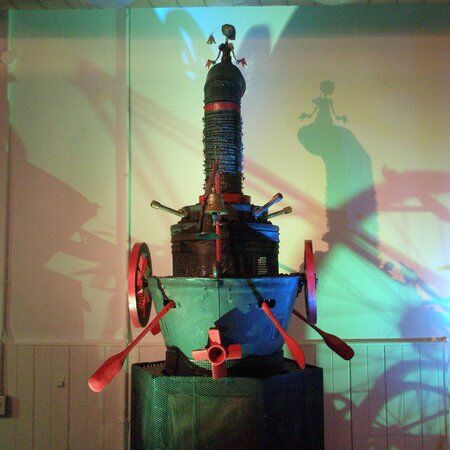
Eduard Bersudsky and the Sharmanka Kinetic Theatre
The Rise of Bersudsky’s ‘Kinemats’
Eduard Bersudsky was a self-taught artist born in St. Petersburg (formerly Leningrad), Russia. He discovered his passion for carving in his late 20s while juggling various jobs, from metalworker to barge skipper. His unconventional education came from museums, libraries, and evening classes in drawing and sculpture.
In the midst of his career, Bersudsky began crafting kinetic sculptures in his small flat, which soon took over his living space. These mechanical sculptures, which he called ‘kinemats’ deriving from the Greek word "kī́nēma" meaning "movement," were driven by electrical motors and fashioned from discarded furniture and scrap metal. However, the oppressive nature of the Soviet regime stifled any possibility of publicly displaying his creations.
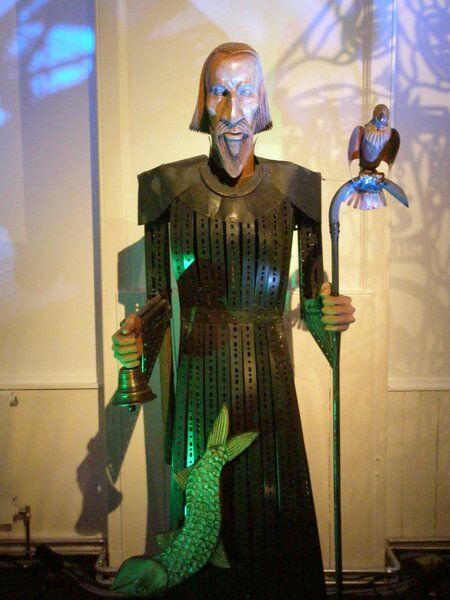
In 1988, an encounter with Tatyana Jakovskaya marked the birth of the Sharmanka Kinetic Theatre in St. Petersburg. With the dawn of "perestroika," Bersudsky and Jakovskaya combined Bersudsky’s mechanical elements with music, light, and shadow play, transforming the ‘kinemats’ into grand performance pieces. Sharmanka premiered in December 1989, with a team of enthusiastic volunteers pulling on different nozzles and grinding gears to bring Bersudsky's creations to life for the public.
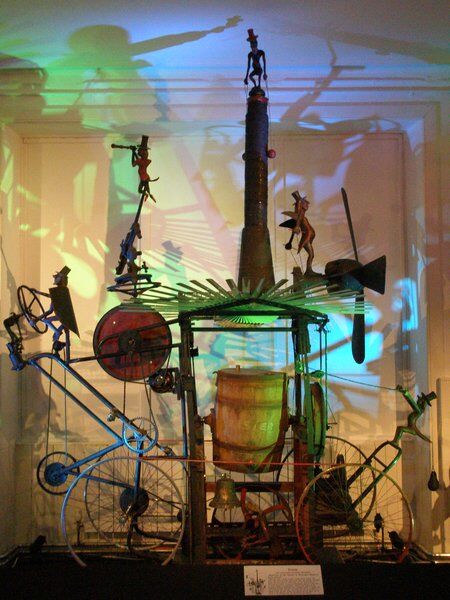
Performing ‘Kinemats’
Within the Sharmanka's main collection, a diverse array of ‘kinemats’ takes centre stage, each telling its own story by its unique appearance and the way it moves. The ‘Wooden Kinemats’ were created between 1974 and 1989 in St. Petersburg, before the theatre's public debut.
The ‘Proletarian Greetings’, are a series of 'kinemats' that honour Swiss kinetic sculptor Jean Tinguely. Created by Eduard Bersudsky in Russia between 1990 and 1991, these pieces offer a glimpse into the artist's respect for his predecessors and how they inspired his own work.
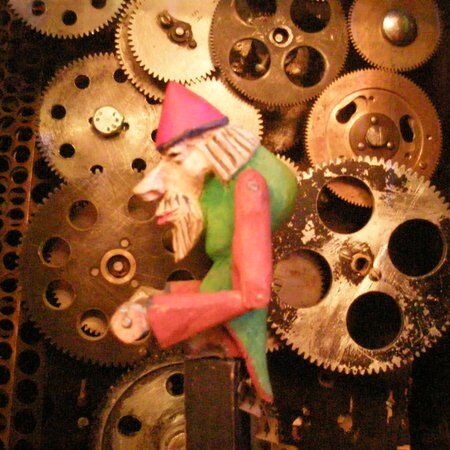
Transitioning to the ‘Metal Kinemats’ collection, spanning from 1989 to 2012, visitors can see side by side works created both before and after Sharmanka's relocation to Glasgow. These pieces showcase Bersudsky's growth as an artist and how his creations have evolved throughout his career.
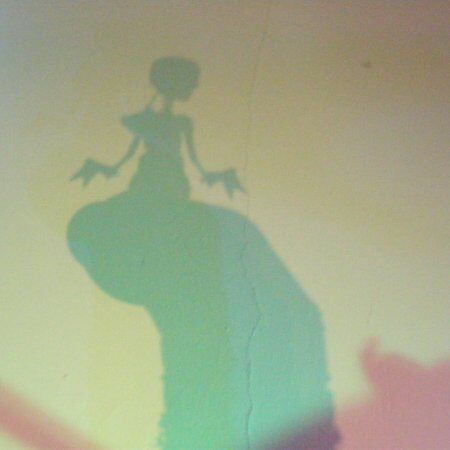
Touring Sets
‘Travelling Circus’ was also created between 1974 and 1989 and demonstrates Berdusky’s early experiments as demand grew for art that was more compact and easily transportable.
Building on the success of ‘Travelling Circus,’ the ‘Gothic Kinetic’ collection emerged in 2009. As the name suggests these pieces transport viewers to a realm of dark enchantment, where whimsy meets macabre in a mechanical dance.
In 2015, the Sharmanka introduced its latest touring set, ‘Merry-Go-World’. Through these touring collections, the Sharmanka Kinetic Theatre continues to push the boundaries of kinetic art, submerging viewers in a world where the ordinary becomes extraordinary.
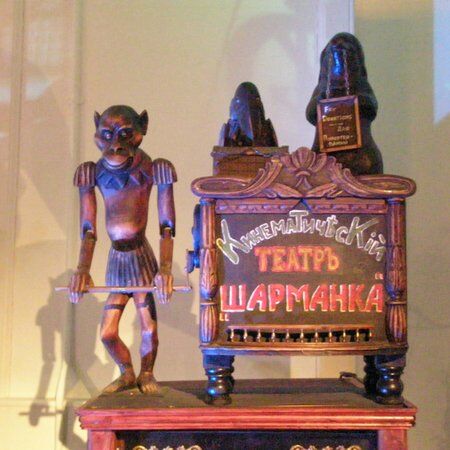
Moving to Scotland
Sharmanka's relocation to Scotland was prompted by the economic downturn in Russia in 1993. Sharmanka first found a temporary home in the village of Blainslie, in the Scottish Borders, before settling in Glasgow's Merchant City in 1996. The gallery/workshop opened its doors on the second floor of 14 King Street, marking the beginning of a new chapter for the theatre.
Since first coming to Scotland, Sharmanka has expanded its presence, receiving support from the local art community and cultural institutions such as Glasgow Gallery of Modern Art. In 2009, the theatre moved to Trongate 103, where it continues to thrive as a cultural landmark. The theatre's performances, attended by thousands of visitors annually, have earned it a reputation as a popular tourist attraction in Glasgow.
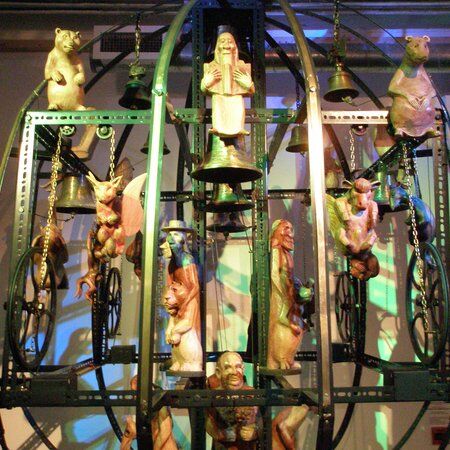
Sharmanka Kinetic Theatre Today
As a registered charity in Scotland, Sharmanka's activities are supported by grants from various organisations, including Glasgow City Council and Creative Scotland. Alongside its theatrical performances, Sharmanka also hosts a range of events such as concerts, film screenings, and poetry evenings.
The theatre's kinetic sculptures have been exhibited worldwide, from the Eretz Israel Museum in Tel-Aviv to the Museum of Nonconformist Art in St. Petersburg. Bersudsky's creations, including the iconic Millennium Clock Tower at the Royal Museum in Edinburgh, continue to inspire awe and fascination, transcending geographical boundaries and cultural divides.
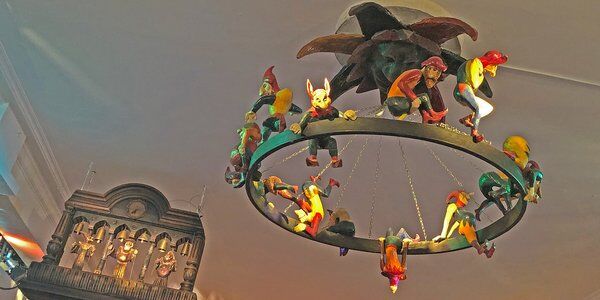
Discover More about Glasgow with CityDays
Ready to discover more of what Glasgow has to offer?
CityDays have a brand new treasure and scavenger hunt in Glasgow which combines the fun of an escape room with the historic facts and whimsical trivia of a walking tour!
Take the stress out of planning your visit to Glasgow and book your adventure today!
Not visiting Glasgow this time? Don’t worry, you’ll find us all over the world.
